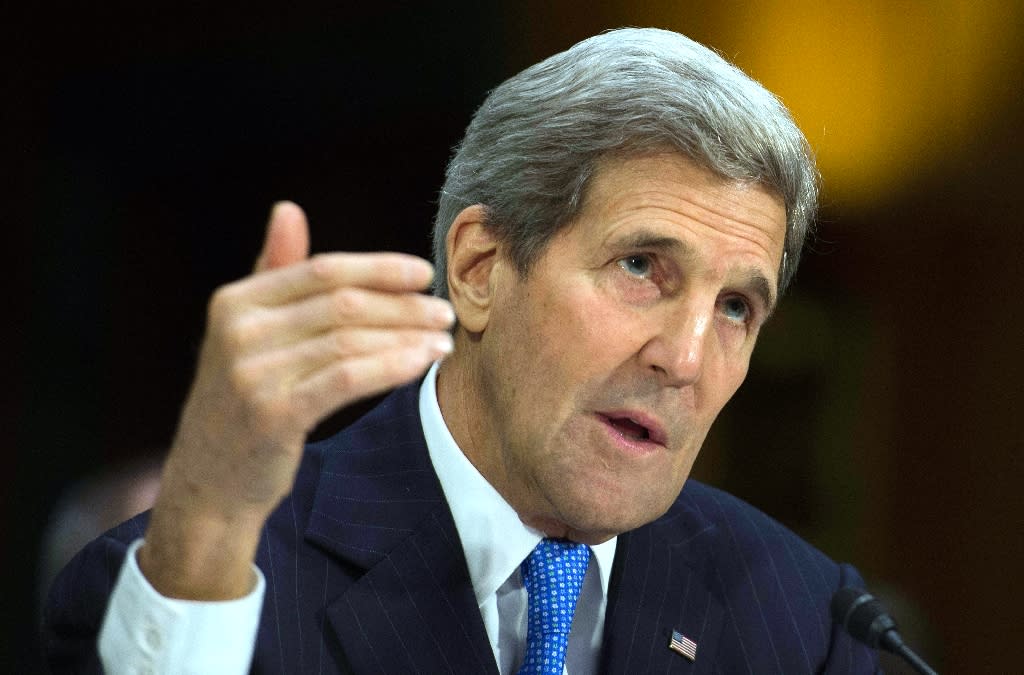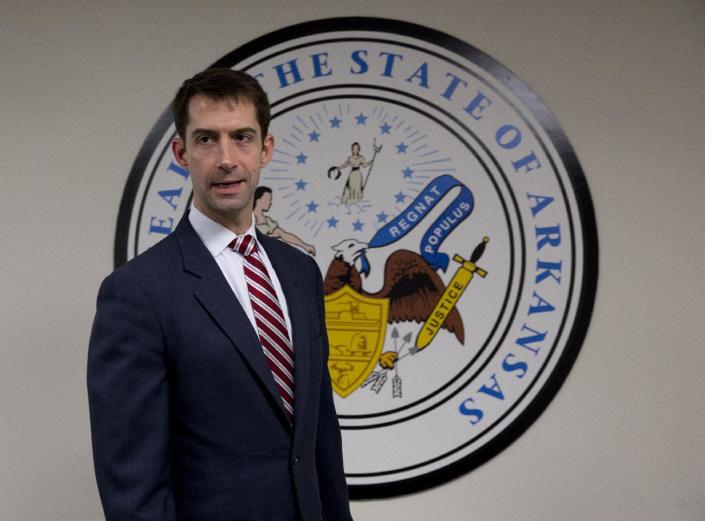Kerry: Even a Republican president won’t undo Iran nuclear deal
The Republican Senate letter is “absolutely incorrect” on the law, the secretary of state told a Senate panel Wednesday

Secretary of State John Kerry bluntly told Republicans on Wednesday that they are kidding themselves if they think a GOP president could stroll into the White House in January 2017, pick up a pen, and nullify a nuclear agreement with Iran.
“It’s not going to happen,” Kerry told lawmakers during a frequently contentious Senate Foreign Relations Committee hearing focused on the war against the so-called Islamic State.
The top U.S. diplomat’s dismissive comments came as the United States, with its partners Britain, France, Germany, Russia and China, faces an end-of-March deadline for reaching a framework deal aimed at ensuring that Iran does not develop a nuclear weapon. Tehran admits to extensive nuclear facilities, but claims that it will use nuclear power only for civilian purposes, like generating electricity. Washington and its allies doubt this, noting that the Islamic Republic of Iran has tried to keep large parts of its atomic infrastructure secret.
Kerry acknowledged that a future president could “come in with a different attitude” about the pending deal, but implied that the international consensus would make rolling it back prohibitively difficult.
“I’d like to see the next president, if all of those countries have said, ‘This is good and it’s working,’ turn around and just nullify it on behalf of the United States,” he told the committee.
The issue was raised in an open letter drafted by Sen. Tom Cotton, R-Ark., and signed by 46 fellow Senate Republicans, warning Iran’s leaders that a deal with Obama may not survive past his presidency unless Congress approves the deal. Lawmakers, or Obama’s successor, could modify the arrangement after he leaves office, the letter cautioned. Many Republicans considered likely to run for the White House in 2016 have either signed on to or expressed support in principle for Cotton’s effort.
Obama and congressional Democrats, as well as some well-known Republican foreign policy hands, have denounced the message as undermining the president’s constitutional authority to conduct foreign policy. Republicans in turn have pointed to past instances of Democrats undertaking foreign policy overtures that undermined the executive branch.
“My reaction to the letter was utter disbelief,” Kerry told the committee on Wednesday, adding that if he had been asked to sign on to a similar letter when he was in the Senate, “I guarantee you no matter what the issue and no matter who was president, I would have certainly rejected it.”

Kerry said claims that Congress must approve the agreement are “absolutely incorrect,” and that the letter’s assertion that lawmakers could alter the deal is also mistaken.
“It’s incorrect when it says that Congress could actually modify the terms of the agreement at any time. That’s flat wrong,” he said. “They don’t have the right to modify an agreement reached executive to executive between the leaders of countries.”
In fact, Congress could try to undermine any such agreement by cutting off necessary funding, or passing legislation that conflicts with the agreement. But to do so, it would need a veto-proof majority — and be willing to roll back an agreement that is expected to include intrusive monitoring and inspections of Iran’s suspect nuclear program.
Kerry tried to cool some of the rhetoric in the debate surrounding the letter. The New York Daily News on Tuesday branded the 47 signatories “traitors.”
“No one is questioning anybody’s right to dissent. Any senator can go to the floor any day and raise any of the questions that were raised” in the letter, he said.
But “this risks undermining the confidence” that foreign governments have in the United States and existing agreements, Kerry said.
And telling the world that the only binding deal is one negotiated with Congress, he added, is “both untrue and profoundly a bad suggestion to make.”




